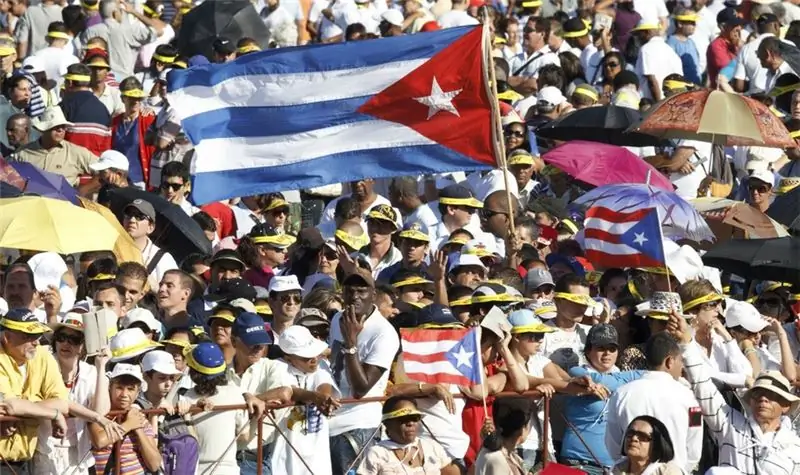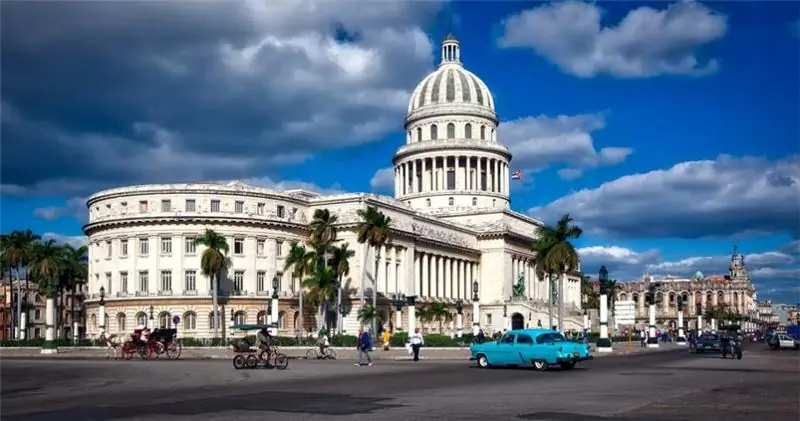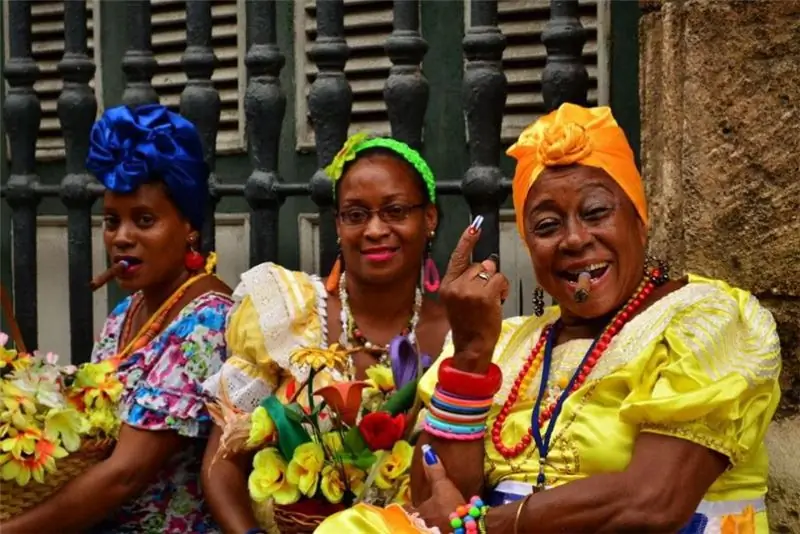
Until that momentous moment when Columbus's sailors landed in Baracoa Bay, Indian tribes lived peacefully on Liberty Island. Colonization brought complete extermination of the indigenous population and Spanish became the state language of Cuba. Its Cuban variety is called Espanol Cubano.
The formation of the language of modern Cubans was influenced by the dialects and dialects of slaves from Africa, imported to work on sugarcane plantations, immigrants from Mexico, Haiti and from the state of Louisiana.
Some statistics and facts

- The population of Liberty Island is 11.5 million people.
- The Cuban language, despite its many peculiarities, is quite understandable for a person who knows Spanish. Nuances are found in the number of second person pronouns and in some phonetic features of pronunciation.
- Cuba is home to a huge number of people who speak Russian. This is the generation that studied in higher educational institutions during the Soviet era. They still remember the Russian language and, if necessary, willingly help tourists.
- English is still not held in high esteem on Liberty Island and is mostly spoken by the staff of large hotels in the resort areas of Varadero, Trinidad and Holguin.
Experienced travelers are advised to take a Russian-Spanish phrasebook on a trip around Cuba, especially when it comes to an independent tour.
The language of great discoveries
Spanish is spoken in the world much wider than other languages of the Romance group and the number of speakers of it ranks second after native Chinese. More than 548 million people on our planet speak Spanish.
It is Spanish that is called the language of great discoveries, because it was spoken by most of the navigators who discovered new continents and islands in the 16th-17th centuries.
The spoken and even written state language of Cuba contains a large number of words that are characteristic only of the local dialect. They are called "/>
Lost in translation

Bearing in mind the low popularity of English, it is worth studying the names of dishes in the state language of Cuba in order to know what to choose in the restaurant menu. It is good if the tourist remembers how the numbers are pronounced in Spanish. This will avoid misunderstandings in communicating with taxi drivers and sellers in the market.






